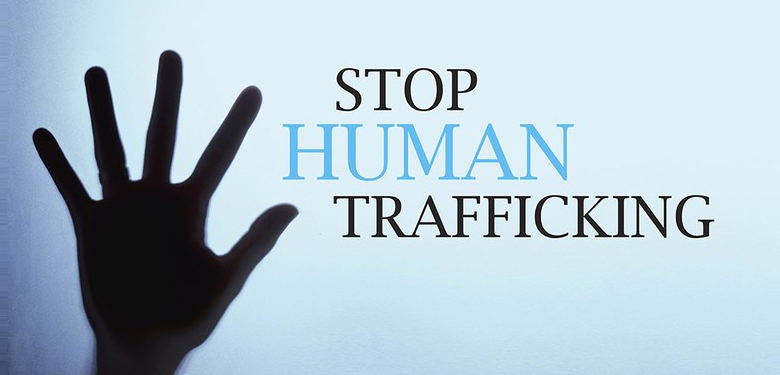Human trafficking and slavery: Updates from Hong Kong
This past Monday, on the World Day Against Trafficking in Persons, an alliance of 27 civil society organisations launched a handbook to help service providers better identify and assist victims of human trafficking in Hong Kong. This group, known as the Civil Society Anti-Human Trafficking Task Force Hong Kong (Task Force), was established in 2016 to enhance coordination among organisations in Hong Kong tackling the issue, and also to investigate the nature and scope of human trafficking across the city.
Human trafficking in Hong Kong – more prevalent than we think
A preliminary study by the Task Force identified 60 victims of human trafficking since August last year out of 1,037 suspected cases. This figure is significantly higher than the nine victims identified by government authorities in 2017 and suggests that human trafficking may be more prevalent than we think. The Task Force noted that the majority of cases – 59 of the 63 victims – were exploited for forced labour, and 70% of them entered Hong Kong using Foreign Domestic Helper (FDH) visas. Hong Kong has one of the highest densities of migrant domestic workers in the world. A study by the Hong Kong Justice Centre estimates that as many as one in six FDHs in Hong Kong are working in conditions of forced labour and of these, 14% (about 8,000 people) have been trafficked into the situation.
Pressure on government to do more
Pressure on the Hong Kong government is mounting with the release of the US State Department’s annual Trafficking in Persons (TIP) Report this June, listing Hong Kong on the Tier 2 Watch List for a third consecutive year.
Figure 1 Ranking Tiers from the Tip Report
Hong Kong avoided automatic downgrading to Tier 3 where sanctions could be imposed, due to a formal action plan and steering committee that the HKSAR Government announced earlier this year. The report also recognised the government’s efforts to impose tougher penalties on agencies that violate certain labour provisions, increasing the number of investigations and training significant numbers of frontline offices on victim identification and investigative methods, as well as greater protection for Hong Kong’s 370,000 FDHs.
Whilst the action plan and steering committee are seen as a step in the right direction, the Tip Report and civil society organisations in Hong Kong are calling for lawmakers to enact a comprehensive anti-trafficking law that criminalises all forms of trafficking, including sex trafficking and forced labour. Currently, forced labour is not a crime in Hong Kong.
A Modern Slavery Act for Hong Kong?
Modelled on the UK Modern Slavery Act, a draft Modern Slavery Bill 2017 was discussed in the Legislative Council Panel of Security meeting on 5 June. If passed into law, the bill would require companies exceeding a certain turnover to produce an annual slavery and human trafficking statement, authorised by the board, detailing the steps taken to ensure slavery and human trafficking is not taking place in any part of the organisation’s business and supply chain. Although some companies are already publishing these statements to meet UK, EU and Australian requirements, there seems to be reluctance from certain lawmakers to make significant changes to the law locally. There is no timeline for this bill, which following further discussion by the Panel of Constitutional Affairs, would need sign off from the Chief Executive followed by public consultation. It is unlikely that Hong Kong will enact a modern slavery law anytime soon.
Examples of proactive engagement from responsible companies
Macquarie – Since 2014, the Macquarie Group Foundation has engaged in a long term, regional project in Asia around preventing and responding to modern slavery, specifically on issues affecting migrant domestic workers. They have produced a research report, Modern Slavery in East Asia: Protecting the rights and promoting the autonomy of domestic migrant workers from Indonesia and the Philippines, and also proactively educate their staff, some of whom are likely to employ domestic workers, to raise awareness of human trafficking issues.
Thomson Reuters – uses its expertise in data and risk assessments to provide companies with tools like Thomson Reuters World-Check® which helps compliance professionals go beyond criminal background checks and database screens to include everything from negative media to voluntary associations to links with political campaigns and officials to digital relationships via social media. Thomson Reuters also leverages its networks and platforms to bring exposure to the issue, for example on its website and through its Stop Slavery Summit 2018, which takes place on 28 August in Hong Kong.
In addition to private sector lead initiatives, for those companies who are looking for guidance, The Mekong Club can help to identify risk areas within their business. Their platform works to mobilise the private to disrupt and end modern slavery using tools and industry-specific working groups for financial service providers, apparel and footwear, hospitality and retail industries.
Only 0.2% of trafficking victims around the world are helped each year. The first step to combatting modern slavery is to get informed. Human trafficking is estimated to generate profits of US$150 billion per year for exploiters, and according to the The Mekong Club seven in 10 of the victims are directly related to the private sector. It is highly likely that we are all unknowingly contributing to this illegal industry through the products and services we buy and we all have a responsibility to act. We all have a responsibility to act.
